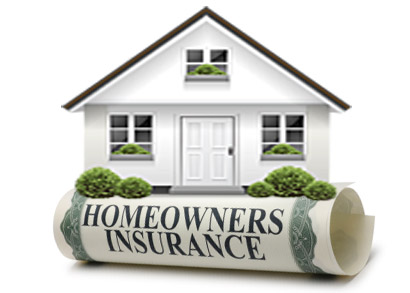FRIDAY, JUNE 12, 2020

Basic Insurance Terms:
- Policy: The written contract stating the conditions of your insurance coverage.
- Agent:The person who sells and services insurance policies.
- Adjuster: A person who investigates claims and recommends settlement options based on estimates of damage and insurance policies held.
- Claim: A demand made by the insured, or the insured's beneficiary, for payment of the benefits as provided by the policy.
- Indemnity: Restoration to the victim by payment, repair, or replacement.
- Coverage: The scope of protection provided under an insurance policy. In property insurance, coverage lists insured perils (the cause of a loss, e.g. fire), properties covered, locations covered, and individuals insured
- Coinsurance: Property insurance requires policyholders to carry coinsurance — insurance equal to a specified percentage of the value of property — in order to be eligible for full payment on a loss.
- Actual cash value: Cost of replacing damaged or destroyed property with comparable new property, minus depreciation and obsolescence. For example, a 10-year-old sofa will not be replaced at current full value because of a decade of depreciation.
- Qualifying event: An occurrence that triggers an insured’s protection.
- Deductible: Amount of loss that the insured pays before the insurance kicks in.
What Is A Homeowners Policy And What Does It Include?
Homeowners Insurance provides you with financial protection in the event of damage or an accident involving your home. There are 8 kinds of coverage, named HO-1 through HO-8, which simply put is standard to deluxe. S.E. Benchmark can help you figure out which is the best coverage option for you.
Standard insurance covers four major points:
- Property/Dwelling and other structures: This helps to pay for repair or rebuild a home and even structures not physically attached to your home (such as sheds or garages) if they are damaged by a disaster listed in the policy. This also includes damage to fixtures such as plumbing, wiring, and heating.
- Personal Property: Furniture, clothes, and other personal items are usually covered if they are stolen or destroyed by certain types of natural disasters. Most companies provide coverage limits of 50 to 70 percent of the amount of insurance on the structure of the home. Coverage often extends even to your trees, plants, and shrubs if they are stolen, catch fire, hit by lightning, vandalized, destroyed in a riot, or blown to pieces by falling aircraft (seriously). Usually not covered: Damage by wind or disease.
- Liability Protection: Liability coverage helps protect you and your family from claims and lawsuits filed by other people. This clause could also include your pets. That means if your bites someone, your insurer could help pay the woman’s doctor bills, whether it happened on your property or hers. The liability portion of the policy pays for both the cost of defending you in court and most court awards up to the limit of the policy.
- Additional Living Expenses: If your house is destroyed by a fire, storm, or other insured disaster, this could help pay the costs of living somewhere else until your house is rebuilt. It may cover hotel bills, restaurant meals, and other living expenses. Coverage for additional costs differ.
What Is Not Included?
Flooding, earthquakes or pre-existing conditions are usually not included in your homeowners policy. You CAN buy flooding insurance through an insurance agent. Earthquake coverage comes in the form of an endorsement. Endorsements, sometimes called a "rider", are an addition to an existing policy where the scope has changed.
What Is Actual Cash Value?
- Replacement cost
- Fair market value (what you can sell for)
- A combination of the two mentioned above.
What Is Replacement Cost?
(RC) is how much it would cost to completely rebuild your home on the same lot, to the same quality with comparable construction materials, up to the original value. It factors in rising labor, material, and transportation costs.
What Is Extended Replacement Cost?
(ERC) pays a certain percentage over the limit to rebuild the home. Generally, it’s 20 to 25 percent more than the limit of the policy.
What Is Guaranteed Replacement Cost?
(GRC) offers the highest level of protection. A guaranteed replacement cost policy pays whatever it costs to rebuild the home as it was before the loss — even if it exceeds the policy limit.
What Are The Disasters, (A.k.A "Perils"), That a Homeowners Policy Typically Cover:
- Fire or lightning
- Windstorm or hail
- Explosion
- Riot or civil commotion
- Damage caused by aircraft
- Damage caused by vehicles
- Smoke
- Vandalism or malicious mischief
- Theft
- Falling object
- Accidental discharge or overflow of water or steam from within a plumbing, heating, air conditioning, or automatic fire-protective sprinkler system, or from a household appliance
- Sudden and accidental tearing apart, cracking, burning, or bulging of a steam or hot- water heating system, air-conditioning system, or automatic fire-protection system
- Freezing of a plumbing, heating, air-conditioning, or automatic fire-protection sprinkler system, or of a household appliance
- Sudden and accidental damage from artificially generated electrical current (does not include loss to a tube, transistor, or similar electronic component)
Each policy is different and depends on the amount of coverage purchased. It's important to go over your homeowners policy to know exactly what is and is not covered in your policy.
Posted 3:15 PM
No Comments
Post a Comment |
|
Required
|
|
Required (Not Displayed)
|
|
Required
|
All comments are moderated and stripped of HTML.
|
|
|
|
|
|
NOTICE: This blog and website are made available by the publisher for educational and informational purposes only.
It is not be used as a substitute for competent insurance, legal, or tax advice from a licensed professional
in your state. By using this blog site you understand that there is no broker client relationship between
you and the blog and website publisher.
|
Blog Archive
2025
2024
2023
2022
2021
2020
2019
2018
|